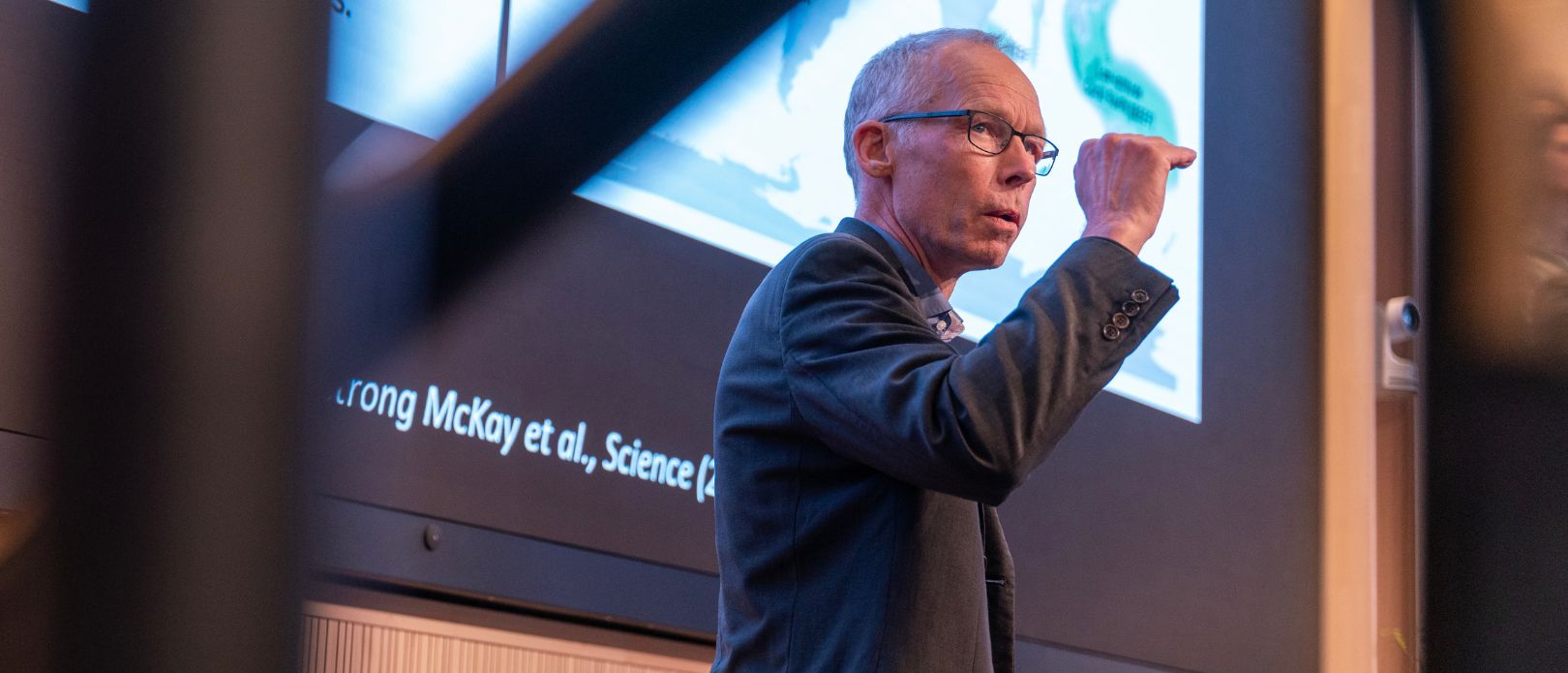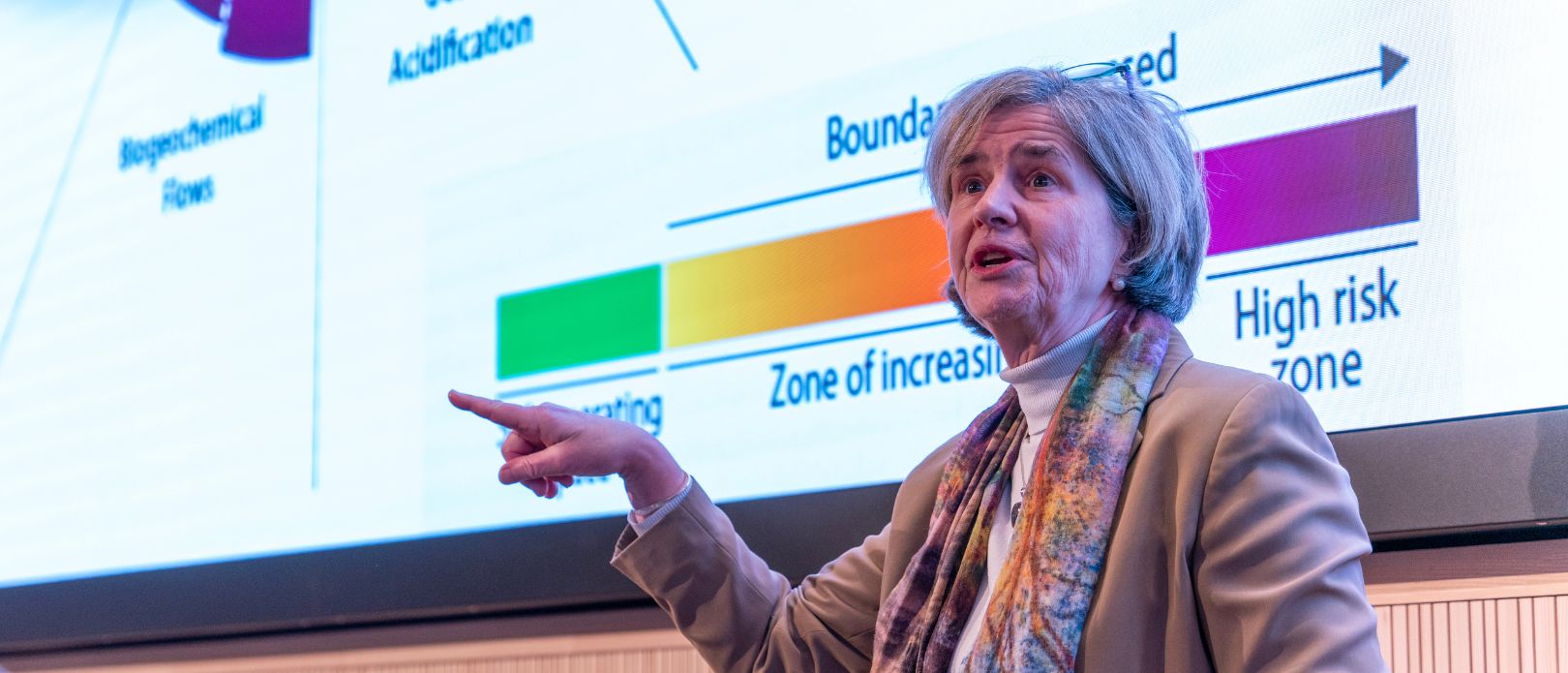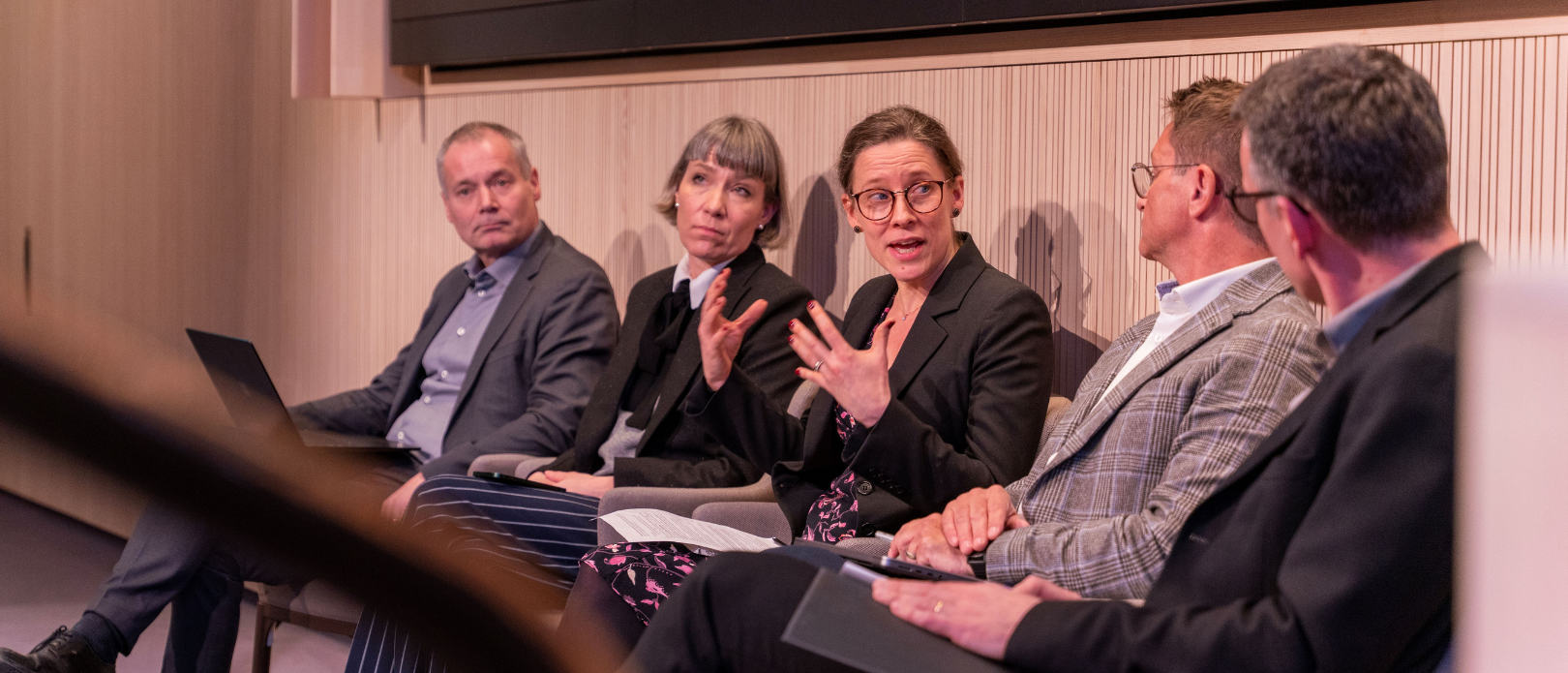Earth Resilience Symposium
The end of an ERA and next steps for Earth resilience

The symposium served as the culmination of the Earth Resilience in the Anthropocene (ERA) project, which received support from an advanced grant from the European Research Council. Photo: Johannes Ernstberger/SRC.
“We are deep into the Anthropocene and recognize that Earth’s resilience needs to be taken seriously to navigate our future,” said Johan Rockström during the concluding symposium of the research project Earth Resilience in the Anthropocene, ERA.
- Since 2017, Centre researchers and partners have worked on the research project Earth Resilience in the Anthropocene, ERA.
- Now, the project concluded with a symposium at the Royal Swedish Academy of Sciences.
- Distinguished keynote speakers and a panel discussed what has been learned about resilience in the Anthropocene and what's yet to come
Resilience has proven to be an influential concept for dealing with change and complexity in diverse social, ecological and technological systems. Now, with accelerating human-driven global change there is a growing imperative to extend the resilience concept to the scale of the whole planet.
On March 11th, a symposium organized at the Royal Swedish Academy of Sciences highlighted recent scientific endeavors to characterize, analyze, and engage with the whole planet’s resilience. The symposium served as the culmination of the Earth Resilience in the Anthropocene (ERA) project, which received support from an advanced grant from the European Research Council. Led by the Centre and the Potsdam Institute for Climate Impact Research (PIK), the project aimed to advance understanding of Earth's resilience in the face of anthropogenic changes.
Deep into the Anthropocene
“The ERA project was a true community effort – we now know we are deep into the Anthropocene, and recognize that Earth’s resilience needs to be taken seriously to navigate our future,” said Johan Rockström, the receiver of the advanced ERC grant that made the ERA project possible.
A number of high-level speakers and panelists shared their perspectives from science, policy, business and wider society, discussing concepts like planetary boundaries, tipping points, Earth System law, planetary commons, social tipping points, and resilience.
“We are making big breakthroughs, we are moving into seeing people and planet as intertwined,” remarked Carl Folke, chair and co-founder of the Centre, in his welcome address.
Katherine Richardson from the University of Copenhagen expressed both celebration and concern upon the completion of quantifying all planetary boundaries, acknowledging the profound impact of these findings. Former Centre researcher David Armstrong McKay, now at the University of Exeter, discussed recent research on global tipping points and their interconnectedness, highlighting the alarming implications. Jonathan Donges from PIK offered a glimmer of hope by discussing how social tipping interventions could result in a “great turnaround” with significant positive transformations.

Katherine Richardson from the University of Copenhagen. Photo: Johannes Ernstberger/SRC.
From science to implementation
Andrew Zolli (planet.com) discussed the many opportunities of monitoring the planet via new kinds of satellites and AI. Marty Anderies (Arizona State University) explored the modeling of Earth resilience to anticipate and mitigate environmental challenges. Manjana Milkoreit (University of Oslo) examined the slow and difficult integration of Earth resilience science into legal frameworks and governance structures. Xuemei Bai (Australian National University) focused on cities and business, addressing the practical implementation of Earth resilience strategies and how to translate these across various scales.

Johan Kuylenstierna (Formas), Darja Isaksson (Vinnova), Centre deputy director, Lisen Schultz and Louis Kotzé (North-West University, South Africa). Photo: Johannes Ernstberger/SRC.
The closing reflection panel discussion included Louis Kotzé (North-West University, South Africa) advocating for enhanced communication between lawyers and scientists to tackle global legal challenges. Centre deputy director, Lisen Schultz, highlighted the importance of transitioning from assessing problems to implementing solutions, focusing on sector-specific actions and community involvement. Darja Isaksson (Vinnova) stressed the significance of inclusivity in discussions, promoting multi-disciplinary and multi-stakeholder approaches with long-term funding for societal challenges. Finally, Johan Kuylenstierna (Formas) emphasized the necessity of connecting scientific advancements to local levels and societal needs, while also advocating for a systems approach and collaboration across disciplines, sectors and funding agencies.
The author and poet Jonas Gren contributed with a poem he has written and dedicated to the late American environmental scientist Donella Meadows:
Mistrust solutions
to a living problem
The only way:
to dance along
and with time
to change the dance








